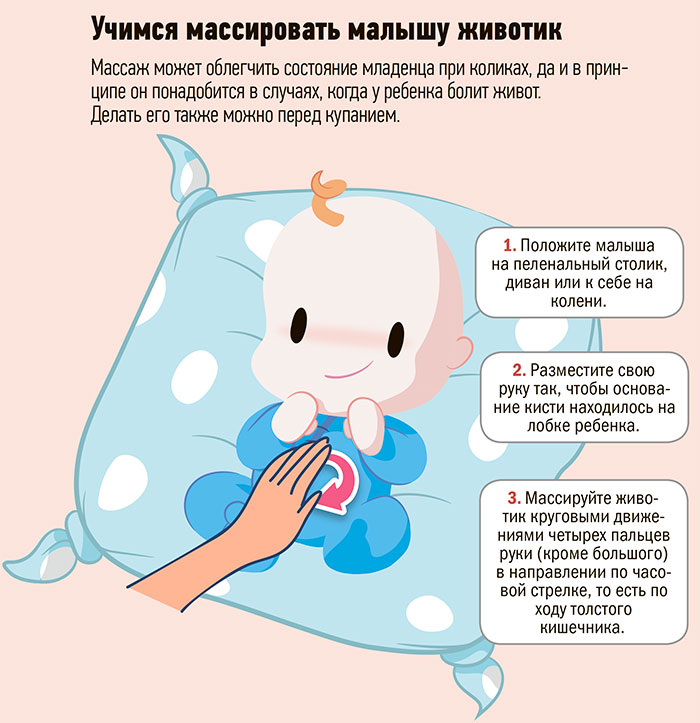Adult people express emotions with words and facial expressions, but the newborn has to use a cry or cry about any changes in his condition: he still does not know how to talk. Anyone who is constantly next to the baby (usually a mother or a nanny) should learn to distinguish by the nature of the “sound signals” emitted by the child, what exactly bothers him at this moment and how to help him cope with the problem. How and what reason “sounds” can be recognized if you show a little attention and sensitivity to the baby.

What to do first?
As soon as the baby starts to whimper, mom should know what to do:
- Take it easy. It is not difficult for experienced mothers with many children to do this, but if a woman is a first-born, you need to learn how to quickly pull yourself together without giving in to emotions. Saying is easier than doing: after all, some children can cry constantly, which is very exhausting for the child himself and the adults around him. If you currently have a husband or another family member near you, give them the baby for a couple of minutes (this is just enough time for you to calm down), leave the room and take a deep breath. Now your task is to help the newborn return to its former comfortable state.
- Define reason for crying. Anything can cause dissatisfaction with the crumbs: from the desire to eat to pain in the tummy. It is necessary to exclude the causes of crying in stages, one after another, until you find something that interferes with the child.
- Eliminate the cause of concern. The ability to recognize the wishes and condition of the baby by his crying and behavior leads to the fact that the mother learns to quickly calm her baby and cope with the problem of his discomfort.
The main thing is to always react to any manifestation of anxiety from the crumbs: he never cries for no reason. A cry helps the baby to signal his mother about any discomfort: hunger, heat, wet diapers, pain, etc. And you, as the person closest to him, simply must understand your child, no matter how difficult it may seem at first.
We also read: Do not leave the baby cry alone
Reasons for concern of infants
The most common irritants for a newborn baby are:
- hunger,
- accumulated air (gaziki) in a stomach,
- wet diapers or a leaking overflowing diaper,
- cold (hypothermia) or heat (overheating),
- folds on clothes or diapers,
- stomach cramps,
- overexcitation or overwork,
- fear of something or someone
- cutting teeth,
- pain due to vaccine or illness.
So there are more than enough reasons for the manifestation of anxiety in the crumbs.
We also read: How to understand the reasons for crying a newborn baby
Dr. Komarovsky talks about the causes of crying
How to calm a baby
Sifting out one by one reason for the discomfort of the crumbs, you can find exactly what disturbs him and prevents him from being calm and happy at the moment. And knowing mom will definitely be able to solve the problem.
1. If the baby is hungry
In Soviet times, our mothers and grandmothers breastfeed their children for hours. Modern pediatricians and psychologists strongly recommend that mothers feed their newborn upon his first request. Often the whimpering of the baby indicates hunger. You just need to give him a chest (and in the case of artificial nutrition - a bottle with a mixture). All babies constantly need maternal warmth and attention, so the nipple for them is not only nutrition, but also a peculiar way of recognizing that the closest and dearest person is nearby. Even if the hunger is not so strong.
2. If after feeding the newborn is swallowed with milk of air
After feeding it is best for a while hold the baby "column", clutching his whole body to him, put the child’s chin on his mother’s shoulder and lightly knock on his back. If he is not on time burped, and the air remains inside, this can interfere with the crumbs, causing discomfort. As soon as the air (gases) come out, the anxiety of the baby will pass.

3. If the baby is unpleasant due to a feeling of damp
Even the highest quality and most expensive diaper you need change every 4 hours, and in the case of a bowel movement - immediately after it. With diapers you have to do this at times more often. Therefore, as soon as the groaning of a child is heard, it is worth checking whether it is wet, whether it has shaken or crowded the diaper.
4. If the temperature is uncomfortable. Baby stuffy or cold
When a newborn is stuffy or cold, he will certainly respond to this with an unhappy cry. Overheating and hypothermia are very harmful to the baby due to the immature heat transfer system. In the first month, from the point of view of physiology, the baby is generally not able to retain heat. Therefore, pay attention in time to whether there are a lot of clothes on it in a stuffy room or if it is cold in your room if it is cool in the room. Be sure to abandon synthetics in children's things. Remember to ventilate your child’s room more often, but avoid drafts.
We also read: what temperature should be in the room of a newborn baby
5. Buttons on clothes or folds on diapers can give a baby unpleasant sensations
All baby diapers and clothes should be soft, made of natural materials, without spools and bends. Babies under 1 month of age in underwear (men, vests, romper suit) should not have accessories (buttons, hooks or zippers). For such children, even the seams on things make out. If, nevertheless, it is the clothes or the crumpled diaper that caused the child’s discomfort, you just need to change his clothes or change his clothes, and then shake them to calm him down. It helps some children well dense swaddling (with handles): It is associated in the baby with cramped in the mother’s tummy.
6. If the baby is overexcited and cannot fall asleep
It often happens that the emotions received by a newborn (in communication with other relatives or guests at home) prevent him from falling asleep. Such overexcitation will also lead to whims. Simple actions before bedtime help to tune in a calm sleep:
- evening walk in the fresh air,
- bathing,
- light massage
- motion sickness in a crib or stroller,
- chest or dummy
- slow and quiet pleasant melody, lullaby or even monotonous sound,
- a mobile over a crib or pram with cute little animals and calm music,
- hissing, wiggling ... etc ... ways to calm a baby before bed, mass.
We also read: White noise: sedative for a newborn
The same methods can also be used in case of overwork of a baby if he has little sleep during the day. All repeated childhood moods for the night are effectively eliminated thanks to daily routine.
7. If the baby is scared, left alone in the room
When the mother, having put the baby to bed, leaves the nursery, the child may wake up. And as soon as he does not find a dear little man nearby, he begins to show concern. To whine did not have time to go into a scream, you need to return to the child’s room as soon as possible and shake it. If this does not help, take the baby in her arms.
And a couple more useful tips. From birth to 3 months, children quickly calm down from techniques that remind them of intrauterine life: sucking, swaying, hissing, laying on one side in the fetal position and swaddling. And starting from three months, babies are already able to switch attention from one subject to another and look at it for a long time. Colored paper, balloons, rattles, bright pictures in the book will help him to escape, and soon he will forget why he started this whole concert.
Pediatrician Video Tip: How to Quickly Comfort a Newborn
An experienced pediatrician at the Healthy Generation Clinic, PhD in Medicine, Natalya Konstantinovna Bishevskaya, will share a unique soothing technique. Use these few seemingly simple actions and you will be able to create comfortable conditions similar to intrauterine ones, in which your baby will quickly stop crying and fall asleep, almost like magic!
How to calm a newborn baby with colic
Intense tearful crying with a child's leg curl and a hard, swollen belly most often indicates colic. Usually they are observed daily in the evenings and become a real tragedy for mothers who are powerless before a long cry of crumbs. There are several proven ways to reduce abdominal pain in a child due to the immaturity of his gastrointestinal tract:
- Put the baby on your back and massage your tummy with your fingers closed. It is important to control the force of pressure, do the massage gently, strictly clockwise, avoiding the zone of the liver and navel.
- Apply warmly to the newborn’s tummy. A clean diaper or blanket warmed on a battery (or iron) will do.
- Put the baby in slingHaving exposed your belly to yourself and him, walk around the room like that, quietly humming a lullaby. The hissing in the ear also helps: this sound reminds the children of the blood flow and breathing of the mother when the baby was still developing in her womb.
- Not always conservative methods are able to cope with colic. And when all the funds have already been tried, and the baby is still tormented by excessive gas formation, you should seek the help of an experienced pediatrician: he will prescribe suitable safe drugs. For example, Riabal and Espumisan in the form of syrup or fennel-based tea.
We also read:List of cures for colic

Moms breast-feeding must control your diet: the baby can react to certain foods (for example, peas, cabbage or peaches), and then they will have to be temporarily excluded. It happens that this or that mixture is not suitable for the artificers, and then it also needs to be replaced.
We also read: Colic in infants: symptoms and how to relieve a baby from pain
How to calm a baby during illness
If none of the attempts to calm the crumb has become successful, you need to pay attention to the presence of additional signs that will indicate the onset of the disease:
- fever
- inflammation and redness of the mucous membranes of the nose, throat and eyes,
- rash on the face or body.
1. Teething: During teething, gum pain can be reduced by giving the baby a chilled teether toy or special children's medicines for toothache and itching (for example, Kalgel or Dentinoks-N).They are available in the form of gels, which are applied in a small amount to the inflamed gums of a child.
We also read: First aid for teething in the baby: TOP - 7 gels for gums
2. Otitis: Abrupt continuous crying can be the result of otitis media if the remnants of breast milk or mixture fall into the ear canals and cause inflammation in the ear. The pain with such a diagnosis is so severe that babies even refuse to breast, because sucking for them is also painful. You can check whether everything is in order with the ear by pressing a finger on the cartilaginous protrusion at the base of the ear. If the baby pulls its head and screams, immediate consultation with a pediatrician or pediatric otolaryngologist is necessary. Before taking a doctor, Nurofen syrup relieves pain (you need to take it according to the dosage specified in the instructions).
3. Vaccination: After vaccination, the injection site may also hurt, become hot or swollen. In such cases, doctors recommend mothers on the day of vaccination and the day after it give the child Nurofen and an antihistamine (for example, Fenistil).
Remember! You can’t get carried away with drugs for no apparent reason: they are prescribed exclusively by a doctor in certain doses according to the baby’s disease, his condition and age.
It happens that the despair of mothers due to daily childhood tantrums or screams turns into real depression and self-denial. You do not need to look for a reason in yourself, just calm down (after all, your nerves and anxiety are transmitted and crumbs) and understand: sooner or later you will definitely learn to quickly understand your beloved baby.
We also read:
Video: How to calm a crying child in 5 seconds!
The American doctor came up with how to calm a crying baby in 5 seconds:
Video 2: With translation










As a mother of two children, I know that crying a baby is not always a whim, but you should not panic. I can distinguish when children are capricious (especially when they want to sleep), and when something really bothers them. Then we look for the problem and fix it. The main thing is to feel your baby!
I think that I was lucky, my son cried very much only when he wanted to eat or at colic. Moreover, the problem with colic was solved only with the help of espumisan - they were given it prophylactically, folk methods did not help at all.
I have two children, and both from the first days of my life suffered from tummies. I will never forget these sleepless days and nights and the feeling of despair that you can’t do anything. Especially when neither massage nor medication helped. It was difficult to calm down herself and not to panic. But nothing, everything is already in the past)))
For me and my son, the period of colic was also the most difficult.The child could scream all evening and it was very difficult to alleviate his suffering. Until a friend suggested a good remedy - a heating pad toy, inside of which there are cherry stones. Also a good sedative for crumbs was the noise of the included hair dryer or cooker hood.
With the second child I was saved by attaching to my chest, almost always) This is food, water, and a sedative for the baby. About the method, when a baby is applied to her mother’s body with a naked tummy, she also heard, tried, and acts well.
Since I breast-fed my son for more than a year, I also often calmed him by applying to her breast. But with gaziki we suffered for a long time, neither warm compresses, nor a massage helped. And calming down when my son cried was a problem for me.
We are already 7 months old, but the period of colic will probably never be forgotten. We have a first-born, grandmothers sometimes helped, a nurse came often, but panic often took place. We lived in constant fear: suddenly it would yell again, what else should I give. The article describes the most effective methods, but we still drank a 10-day Linex course, then they gave Smecta, because neither Espumisan, nor Cuplaton, nor Babicalm helped us much. And now we have a period of cutting teeth. For a month the child’s nose was blocked, coughing was treated for everyone, even an antibiotic was prescribed for us - nothing helped. As a result, the first teeth erupted - everything immediately passed. So my advice is, do not rush the child to stuff drugs. Mom should intuition to tell what worries the child. I have it, apparently, is not developed at the proper level.
I have two children and are completely different. She didn’t know any problems with her daughter, she was quiet without any causeless cries. If she started acting up, I knew something was wrong. But the son loved just to shout. And the more often, the better. It was not always possible to understand what he needed. Saved breasts, massage and warm baths with chamomile.
We were best helped by motion sickness in our hands, accompanied by monotonous sounds.
It is interesting that even now (a child is 6 years old), if he put his son and “mumble” for several minutes, he will surely fall asleep.